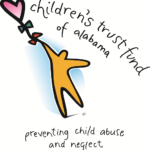Relapse is a common roadblock on recovery journeys and much can be learned from the experience. How a person addresses a relapse can either strengthen their recovery efforts or increase the likelihood of more relapses. One of the most useful parts of treatment programs for addiction is education about the factors that influence the success of a person’s recovery program. Risk factors don’t guarantee relapse, but they certainly make a recovering person’s sobriety more challenging to maintain. Protective factors don’t guarantee smooth sailing, but they greatly reduce the mental health symptoms that often precede relapse.
Among the risk factors associated with relapse is trauma history. Nearly every substance abuse treatment program contains elements of trauma processing because of how extensive traumatic experiences can be in the lives of those with addiction problems. According to the National Council for Behavioral Health, about 70% of U.S. adults have experienced at least one traumatic event in their lifetime. If their trauma histories are left untreated, people trying to maintain sobriety will have a limited capacity for coping with trauma responses and experience more challenges in recovery than those without trauma histories.
More research is needed to determine what additional factors may lead some people to face addiction while others involved in the same trauma experiences may not struggle with alcohol and other substances. What we do know, however, is that there is a significantly stronger link between trauma and addiction than there exists between diabetes and obesity. And while not every traumatized person develops an addiction, it can be said that nearly every addicted person has experienced some form of traumatization.

Something Bigger Underneath the Surface
It’s important for loved ones of people with substance abuse issues to understand the impact of trauma because of the prevalence of co-occurring substance use disorders and trauma-related disorders. And given the prevalence of trauma experiences in the general population, some loved ones may find themselves in need of trauma processing as well. In my work with clients, I’ve encountered family members who have “shared” trauma experiences (i.e. siblings who grew up with the same abusive parent), and some of those family members developed addiction issues while others didn’t.
The consequences and conflicts that often arise during active addiction may also act as traumatizing events for all people involved. I’ve worked with many clients who have loved ones with addiction issues, and sometimes they begin therapy without realizing the full extent of their traumatization. Even if trauma events don’t involve a real or perceived threat of life, they still result in feelings of helplessness and fear as well as diminished capacities for coping with stress and managing impulses.
Traumatized people also lose their ability to be guided effectively by their emotions. The brain’s response to trauma is to “freeze” or numb feelings as much as possible during the event. This means when encountering other triggers that resemble the experienced trauma, a person may experience an emotional over-reaction that, while out of proportion to what’s happening, may very well be the appropriate emotional response he or she would have displayed during the trauma.
Symptom Trade-Off
A significant portion of the population in treatment programs for Substance Use Disorders (SUD) also have a diagnosis of Acute Stress Disorder (ASD) or Post-Traumatic Stress Disorder (PTSD). The main difference between ASD and PTSD is related to timeframe; ASD symptoms can be expected to occur within about a month after the initial trauma, and PTSD symptoms extend beyond that. Numerous studies have found that people recovering from substance addiction who also have a diagnosis of ASD or PTSD report that their trauma symptoms actually become worse during initial periods of abstinence.

One of the most intrusive and difficult-to-manage symptoms of trauma is a flashback. Most of us think of flashbacks as images or other reminders from a trauma memory that abruptly and unpredictably enter awareness. However, about 50% of people with PTSD report experiencing flashbacks in the form of vivid nightmares. These nightmares can be replicative, which means they include actual details from a trauma memory, or they can be more ambiguous by using symbolism related to the trauma.
Substances provide some relief from nightmares by helping people sleep more deeply. This can too easily become a tortuous cycle because substance abuse trades one set of symptoms for another. Irritability increases as addiction develops, and people report feeling more “on-edge” throughout the day after abusing substances to manage poor sleep quality. Many times, the cycle can begin insidiously by well-meaning patients whose doctors prescribe temporary support in the form of sleep medications. Even if the plan is to only use the medication for two weeks or so, the body will begin to become accustomed to having the substance for better sleep quality. So when it’s time for the body to rely on sleep without medication, it struggles to improve sleep quality and naturally this triggers most people to want to continue using. This is why all medical professionals need trauma-informed approaches to account for these risk factors.
Protection is needed against the two-headed beast created by the connection of trauma and addiction. The strongest shield is support from loved ones. That support must be forged with compassion for the unique challenges trauma survivors face as they work to maintain sobriety. I have seen many people who once felt hopeless move through obstacles in recovery and emerge with resiliency—and their loved ones’ willingness to participate in that journey made all the difference.
Melanie is a Licensed Professional Counselor who received her Master’s degree in Clinical Mental Health Counseling from The University of Alabama in 2015 with an emphasis in Marriage and Family Therapy. She has over 5 years of experience working with those who struggle with addiction and with couples and families. She is trained in EMDR therapy and has experience in working with people in the LGBTQ+ community. Melanie works under Lifeline Solutions, LLC, which has two locations serving communities in Birmingham and Tuscaloosa. For more information about psychotherapy services, contact Melanie at 205-614-2604or mchilders@lifelinesolutionsllc.com and visit www.lifelinesolutionsllc.com.








